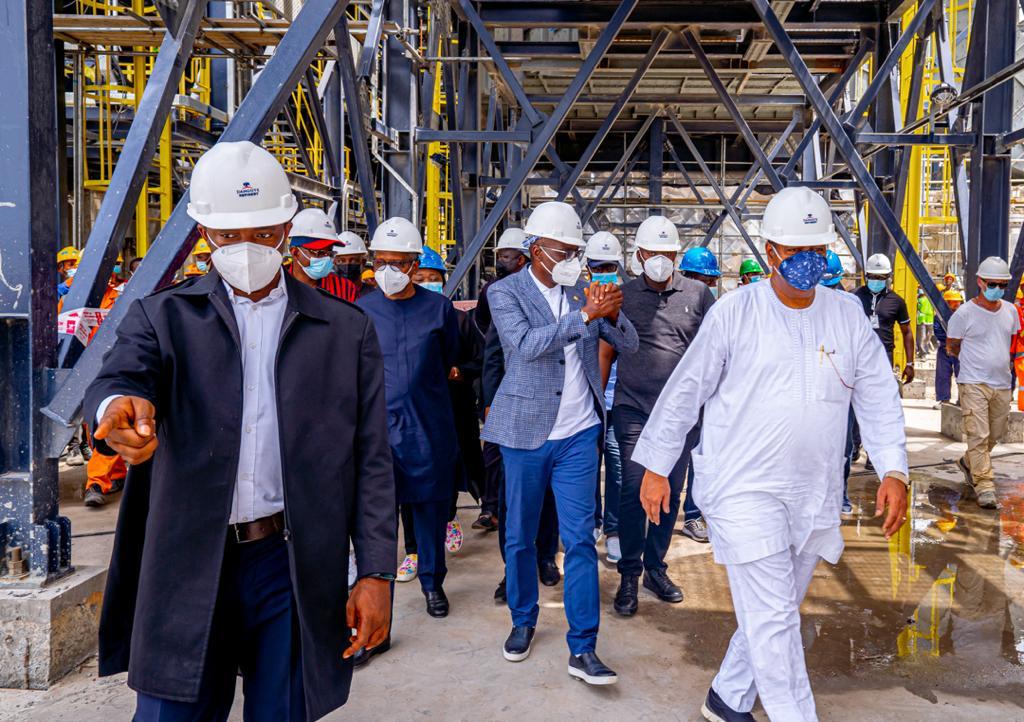The Organisation of the Petroleum Exporting Countries (OPEC) recently released its 2021 World Oil Outlook, showing that global refining capacity could rise by 6.9 million barrels per day between 2021 and 2026, with the expected coming on stream of oil distillation companies.
Similar to previous outlooks, cartel said the refinery additions comprising projects at different development stages of completion are concentrated in developing regions, such as the Asia-Pacific, the Middle East and Africa, accounting for almost 90% of the additions in the period. Africa’s new projects, including a number of pre-fabricated modular facilities, it noted, are located mostly in Nigeria, Angola and Ghana.
Specifically, the cartel said half of the continent’s expected 1.2mb/d new capacity would come from Nigeria’s 650,000bpd Dangote Petroleum Refinery project likely to come on stream next year. It added that when commissioned, the projects “will help to reduce product imports to Nigeria and West Africa and will, in turn, increase the use of local crude. In North Africa, refinery capacity expansions are likely in Algeria and Egypt.”
Speaking on investments in refinery projects, OPEC puts the total global estimated required investments at $1.5tr in the 2021-2045 period, which includes investments of nearly $450bn in new refinery projects and expansions of existing units located mostly in developing countries, including those in the Middle East, Asia-Pacific, Africa, and Latin America.
“The medium-term outlook contains several large projects, many of which have petrochemical integration as well. These developments are in line with expected oil demand growth,” it added.

Olu, Lagos State Governor, being conducted around the refinery project site by President/Chief Executive, the Dangote Industries Ltd, Alhaji Aliko Dangote.
A further breakdown of the figure showed that “around 3.5 mb/d of capacity is under construction or close to this stage; hence, these are the projects with the highest certainty to materialize in the medium-term. There are also projects totalling 3.4 mb/d that are mostly in early stages of development, but still advanced enough in terms of financing and engineering to be considered ‘firm’ medium-term additions.”
The required investments in the midstream sector, it stressed further, “are estimated at around $1.1bn in the same time horizon and are attributed to the expansion of the infrastructure for refining, storage, and pipeline systems, predominantly in developing regions, but also in large oil-exporting regions (e.g. the US & Canada and the Russia & Caspian). Thus, globally, oil-related investment needs in the long-term are estimated at $11.8tr.
“Long-term (2021–2045) capacity additions are expected at 14 mb/d, mostly in developing countries. However, the Reference Case projects a significant slowdown in the rate of additions. Africa and Other Asia-Pacific are the regions where significant incremental capacities are expected, even after 2030.
The report said, “the continent of Africa is home to an abundance of energy resources, including about 10 per cent of the world’s oil reserves; however, it still has difficulty in harnessing these precious resources to meet its energy demand. This, in turn, hinders efforts to provide affordable and reliable energy required for economic growth and development.
“Africa has yet to unlock its huge potential in the energy sector, although its ever-increasing population growth and economic prospects require more energy. This drawback is mostly due to regional uncertainties, as well as government policies and regulatory frameworks guiding the energy sector, and more recently, the efficiencies required to reduce CO2 emissions in exploration and production activities. These challenges have made it increasingly difficult to secure much-needed financing for E&P from foreign investors.”
The report also noted that the impacts of the COVID-19 pandemic had also been a major setback, especially for those countries depending heavily on revenue from fossil fuels for their economic growth and development.








